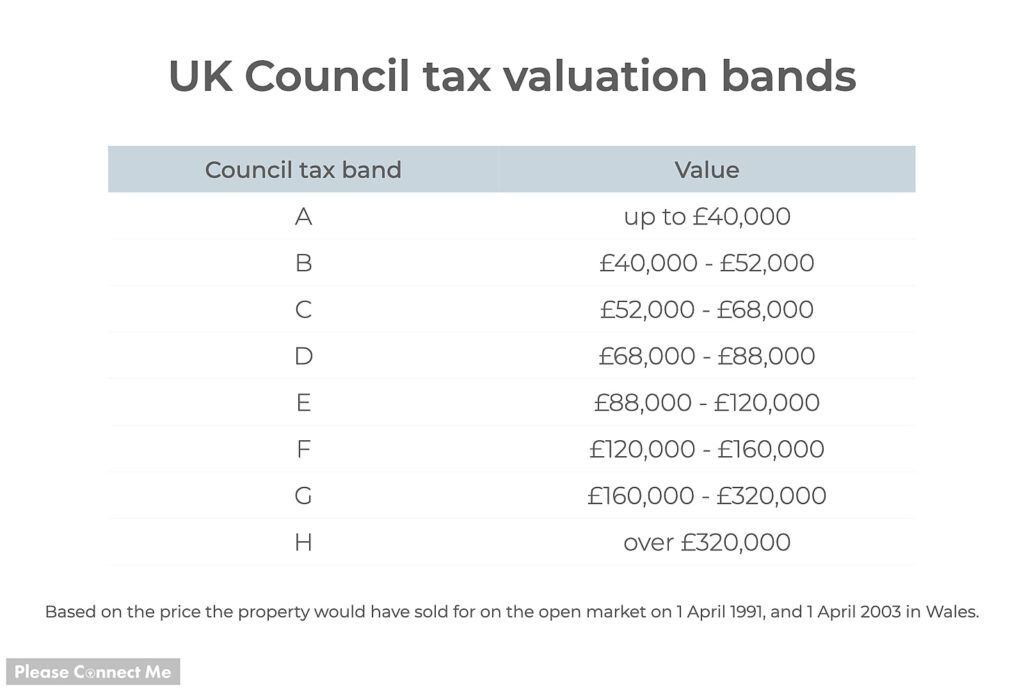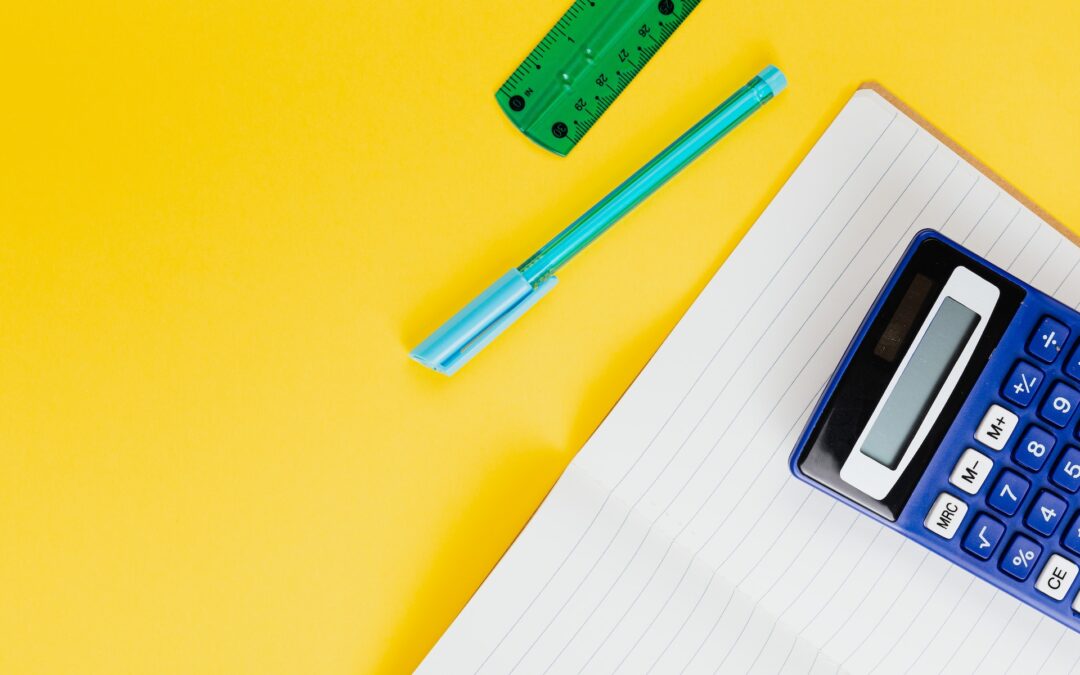Whether you own or rent a property in the UK, it’s important to understand how your utility bills are calculated. Utility bills refer to the various charges that you incur for the services at your home, including energy, water, Council Tax, broadband, and your TV licence. In this article, we break down each of these utilities and explain how they are billed.
💡 Energy bills
The cost of energy is calculated based on the amount of energy used in kilowatt-hours (kWh), plus a daily standing charge. Energy suppliers offer different tariffs, and the amount you pay will depend on your usage and the tariff you are on.
If you’re on a Fixed-Rate Tariff
A fixed-rate tariff refers to an agreement with your electricity supplier, where you are supplied with energy at a predetermined per-kWh cost and daily standing charge for a specified duration. Read more here.
If you’re on a Standard Variable Tariff
When you don’t have an energy contract, you will be put on a Standard Variable Tariff by default. It’s what you’ll be charged for your energy usage when you move to a new place or when your previous energy contract ends. This tariff can change in cost at any time, but it cannot be higher than the Energy Price Cap. In turn, the price cap is adjusted every three months.
Your energy usage is measured by your home meter. Most suppliers recommend using a smart meter, which automatically sends readings back to the supplier. Customers with a traditional meter need to regularly submit readings themselves.
Over the last three years, since the 2021 energy crisis, a range of government schemes have offered support paying energy bills. These will affect the final total you pay.
What is a Standard Credit Meter, Pre-Payment Meter and Smart Meter? Learn more here
Reading an energy bill
Your energy bill should include your personal details, the amount of energy you’ve used (meter readings), how much you were charged and ways to pay your bill. Learn how to read your bill here
Why don’t my energy bills change based on my usage?
If your gas and electric bills are based on your usage, why are the charges not different every month? It doesn’t seem to make sense, but it’s actually a helpful policy on the part of your energy supplier.
Energy usage varies a great deal throughout the year, with most people using much more on heating and lighting in the winter than in the summer. So that you are not suddenly paying double in the colder months, energy suppliers average your bills throughout the year.
Here’s how the process works:
- When you first move into a new home, your monthly bill will be set based on the average usage at a home of that size.
- Your first payment will be taken within the first 14 days of your move or switching provider so your account is in credit.
- Each month, your energy supplier will ask you to provide electricity and – if you have mains gas – gas meter readings.
- Your supplier will use these readings to keep track of how much energy you’ve used, crediting your account for any overpayment.
- After around six months, your energy supplier will adjust your bill based on how much energy you’ve used so far.
- If your account is in credit, your bills will go down and vice versa.
- The aim is at the end of 12 months you’ll have paid for the energy you’ve used in regular monthly installments.
- Your supplier will continue to adjust your bills approximately twice a year while you are with them.
You’ll never pay for more energy than you used, so if you’re in credit when you switch supplier you’ll be refunded the full amount.
🚰 Water bills
The amount you pay for water usage can vary depending on several factors, such as the region you live in, the type of property you have, and your water consumption habits.
If you have a water meter
If you have a water meter, your water bills are calculated based on the amount of water you consume, which is measured in cubic meters (m3).
If you don’t have a water meter
If you don’t have a water meter installed or it’s not being used, you will be charged based on Unmetered Charges. This means your bills will be calculated using a yearly fixed amount and a charge that depends on your property’s value.
If you think you use less water than most people, you could pay less by changing to a metered charges plan!
Wastewater bills
Wastewater is the term used for the water that is removed from your property, also known as sewerage. Usually, the same company that manages your clean water will also manage your wastewater, but sometimes a different company handles it. In such cases, your main water supplier will arrange billing for the wastewater service, and you will get bills for both clean and wastewater through the mail.
Not sure how to read your water bill? Learn more here
🏠 Council tax
Council Tax is a charge levied by local authorities in the UK to fund public services. The amount of council tax you pay is calculated based on the value of your property, with discounts available for sole occupants and full-time students, among others. Each property in the United Kingdom is assigned a Council Tax band ranging from A to H, based on its 1991 market value.

The local council determines the Council Tax amount for each band as part of its budget, resulting in varying tax payments for properties within the same band due to location differences. Therefore the amount you pay for Council Tax will vary depending on the area you live in, the value of your property, and any discounts you qualify for.
Live in London? You can find out the Council Tax charge for your property using our Council Tax Checker
Registering for Council Tax
The details of registering for Council Tax vary between local authorities. With more than 400 UK councils, this means there’s a range of processes. Most councils have adopted an online system to simplify the process, but they are. inconsistent in the information they require.
The good news is you can simplify the process of organizing your Council Tax by using Please Connect Me. Sign up today and we’ll take care of registering you with your council!
📶 Broadband bills
Broadband bills are based on the type of broadband service you have and the download speed you choose. Your broadband provider will send you a bill every month. The amount you pay is determined by your contract with your supplier.
Usually, customers pay the same amount every month while they are under contract. However, some suppliers include a mid-contract price rise in the terms of their agreement. Find out more here.
At the end of your contract, your monthly price will usually increase by as much as 50%. This is the perfect time to switch to a new plan or provider to continue saving.
Looking for great broadband offers? Sign up & let us look into it for you!
📺 TV licence
A TV licence is a legal requirement in the UK if you watch or record live television broadcasts. The licence fee is used to fund the BBC’s public services, such as television, radio and online content. The charge is a fixed amount, and you can pay it annually or in instalments.
The amount you pay for a TV license is fixed and is currently £169.50 per year. You can pay for your TV licence online or by direct debit, and you may be eligible for a discount if you are blind or have a severe vision impairment.
Understanding how utility bills are calculated in the UK can help you manage your finances and ensure that you are paying the right amount for the services you use. By understanding the factors that influence your bills, you can make informed decisions about your energy and water consumption habits, choose the right broadband package and ensure that you are paying the correct council tax and TV license fees.













